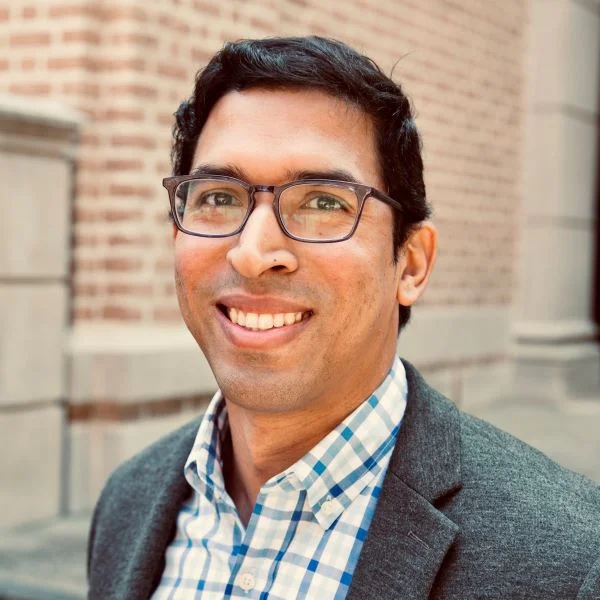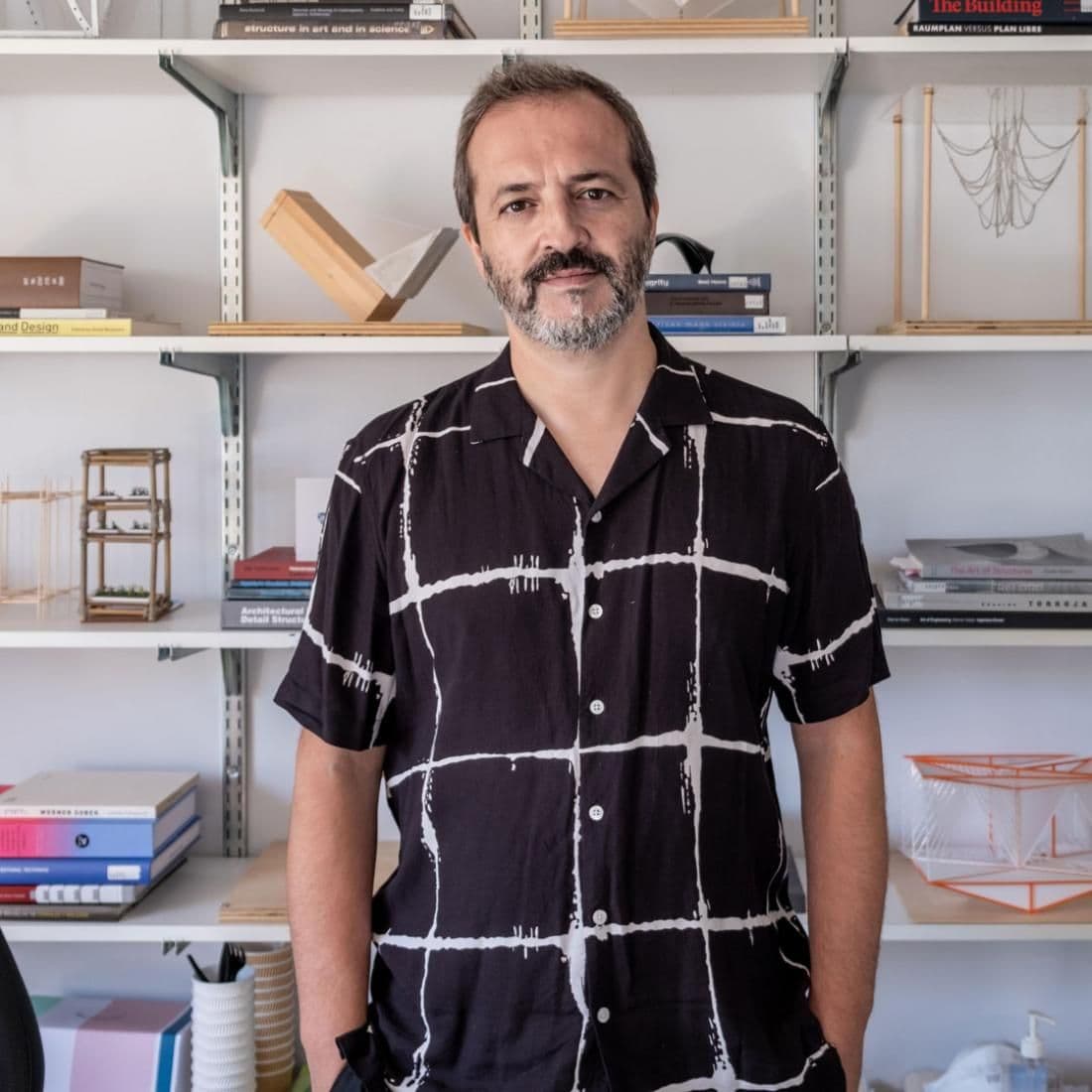RICE GLOBAL PARIS: SUMMER PROGRAMS 2025
Architectural Structures:
Art, Form, Resiliency, and Sustainability
Paris Session 3 | June 27-July 17, 2025
ARCH 238 & CEVE 238 Architectural Structures: Infrastructure Resiliency, Sustainability, Form, and Art
Join Professor Juan José Castellón and Professor Kalil Erazo for a two course, 3-week summer intensive in Paris. This course offers a multidisciplinary introduction to the design of civil and architectural structures, focusing on integrating technical, ecological, and social aspects. Through lectures, visualizations, field trips, and hands-on experiments, students will explore material behavior, sustainability, and structural analysis, while examining historical and contemporary structures.
Request Information
Information Session
Recording
Apply Here
Program Details:
-
Program Dates: June 27-July 17, 2025
-
Program Location: Rice Global Paris Center | Paris, France
-
Who Can Apply? Any Rice Undergraduate. Students interested in architecture, civil engineering and civil infrastructure, sustainability. The course will be cross-listed CEVE 238 and ARCH 238 course with no restrictions for students outside of those departments. No pre-requisites. Note for graduating seniors! You are welcome to apply to this course; however, Rice summer aid (i.e. Rice financial aid) is not available to seniors who have obtained enough credits to graduate by the end of the spring semester. Additionally, you will have to postpone your graduation date to the summer in order to participate. You are, however, still eligible to apply for both RICE GLOBAL tuition and travel awards included in the course application.
-
Tuition Cost: $1,800 per credit hour (this course is 6 credit hours).
-
What's Covered: The program will provide housing for all three weeks, metro card for all three weeks, course-set excursions/tickets, three group meals, and travel insurance.
-
Financial Aid: If you already receive financial aid, you are eligible to receive financial aid for up to 9 credit hours a summer for two summer, at 50% of the tuition rate, i.e. if a Paris course is three credit hours and $5,400 total tuition, eligible students would pay $2,700. Rice summer aid (i.e. Rice financial aid) is not available to seniors who have obtained enough credits to graduate by the end of the spring semester.
After submitting your application, our office is in direct contact with the financial aid office who will let us know if you are financial aid eligible for the summer. If you are accepted, you will immediately know how much financial aid you have available in your acceptance letter.
To find out if you are eligible before acceptance to a course, contact: fina@rice.edu. To learn more about summer financial aid requirements, please visit: https://financialaid.rice.edu/summer-students.
-
Additional Assistance from Rice Global: Students can also apply to receive additional assistance (for both tuition and travel) from Rice Global. Application for assistance is included in the course application.
Course Details:
-
Credit Hours: 6 credit hours (3 credits for ARCH 238 & 3 credits for CEVE 238). Must register for both courses at the same time in order to participate. Courses are cross-listed.
-
Course Instructors: Juan José Castellón (Architecture)
Kalil Erazo (Civil & Environmental Engineering)
-
Course Description: This course will introduce students to the principles that govern the design of civil and architectural structures from a multidisciplinary persepective. The course will explore architectural and engineering methods and processes through which technology is unfolded and implemented to formulate new forms of habitability. Fundamental technical and scientific aspects in architecture such as structure, energy, and materials articulate the design process from a holistic and ecological point of view, and with an intrinsic cultural and social dimension. The course will explore topics in material behavior, forces analysis, construction, resiliency, sustainability, and design considerations. The course will introduce students to historical and contemporary structures through lectures, multi-media presentations, computer-based visualizations, field trips, and hands-on experiments with materials of construction and physical models of structures. The course also addresses sustainability issues specific to infrastructure systems such as embodied carbon and embodied energy, life-cycle analysis and life-cycle cost, and material recycling. Graphical methods of structural analysis will be introduced to analyze the effect of forces on civil infrastructure.
-
Who is this class for? Any Rice Undergraduate. Students interested in architecture, civil engineering and civil infrastructure, sustainability. The course will be cross-listed CEVE 238 and ARCH 238 course with no restrictions for students outside of those departments. No pre-requisites
-
Course Zoom Information Session: Take look at the Information Session recording to learn more.
-
Syllabus: Take a look at the draft syllabus - subject to change.
-
Does this course fulfill a distribution and/or Analyzing diversity requirement? No
For questions, please visit our student program page or email pariscenter@rice.edu. The application deadline is January 31, 2025.

Kalil Erazo
Assistant Teaching Professor, Department of Civil and Environmental Engineering
Kalil Erazo is an Assistant Teaching Professor in the Department of Civil and Environmental Engineering at Rice University. His research is focused on the development and application of robust structural health monitoring methods for resilient and sustainable civil infrastructure subjected to extreme natural and man-made hazards. His research has been applied to assess the state of structural integrity of civil infrastructure systems, including historic infrastructure in the UNESCO World Heritage Site Colonial City of Santo Domingo, a zone subjected to multiple natural hazards such as hurricanes and earthquakes. Dr. Erazo is committed to promoting approaches to achieve excellence in teaching and learning through engaging strategies that help students to develop independent critical and logical thinking skills to solve the pressing engineering challenges that our society is currently facing.

Juan José Castellón
Assistant Professor, School of Architecture
Juan José Castellón is an architect and scholar of building technologies who collaborates with other scholars and engineers, including partnerships with Rice University’s George R. Brown School of Engineering and the Carbon Hub. Castellón's research focuses on the implementation of innovative material processes and structural systems in architecture and on the integrative and ecological design of building infrastructures. Through his work at Rice and his collaborative practice, xmade, located in Basel and Barcelona, he explores the materialization and sustainable design of contemporary building envelopes.
His research output includes structural and material prototypes, installations, and peer-reviewed articles and publications. Recent projects have explored the use of ceramics and textiles in building structures—stemming from his collaboration with eminent manufacturers in Spain—in particular for rooftop structures that also mitigate the effects of sun and rain, a project that was featured in the 2021 Seoul Biennial of Architecture and Urbanism, and it will be exhibited at the collateral event “Students as Researchers: Creative Practice and University Education” organized by the New York Institute of Technology as part of the 18th International Architecture Exhibition The Laboratory of the Future, organized by La Biennale di Venezia 2023.
As an architect and scholar, Castellón has collaborated with international firms such as FOA (London), Abalos & Herreros (Madrid), SHoP Architects (New York), and Herzog & de Meuron (Basel). Before joining Rice University, he also taught at ETH Zurich and the Barcelona Institute of Architecture.